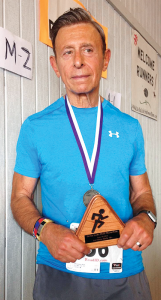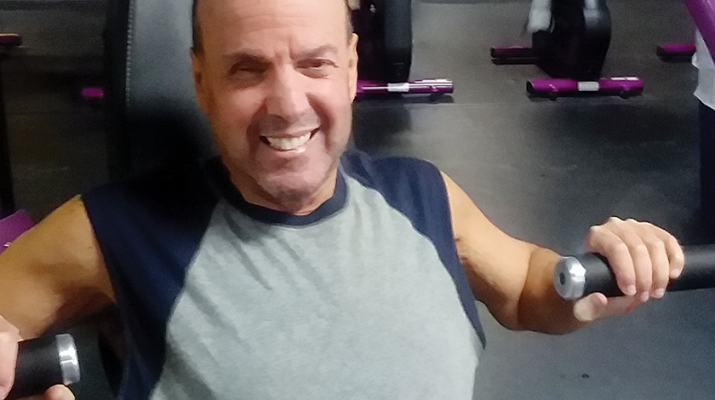For many, physical fitness staves off anxiety, depression
By David L. Podos

A lot has changed in the world of physical fitness.
Physical fitness has evolved with new technologies and a better understanding of the human system.
Fitness machines in gyms today can look like futuristic space-age gadgets, but it’s all about keeping us in the best shape and health as possible.
Good trainers know how to work with each machine and each individual person, tailoring for him or her a specific fitness regime to achieve personal goals.
Even if you don’t have a membership to a local gym, many people will opt to purchase a mini gym or workout machine that can be placed in their homes.
The Mayo Clinic has some advice when it comes to getting healthy through a physical fitness program. It suggests the following:
— Cardio: Also known as endurance activity, it is the cornerstone of most fitness training programs. Aerobic activity or exercise causes you to breathe faster and more deeply, which maximizes the amount of oxygen in your blood. Your heart will beat faster, which increases blood flow to your muscles and back to your lungs.
— Strength training: Muscular fitness is another key component of a fitness-training program. Strength training can help you increase bone strength and muscular fitness, and it can help you manage or lose weight.
— Core exercises: The muscles in your abdomen, lower back and pelvis — known as your core muscles — help protect your back and connect upper and lower body movements. Core strength is a key element of a well-rounded fitness-training program.
— Balance training: Balance exercises can help you maintain your balance at any age. It’s generally a good idea for older adults in particular to include exercises to maintain or improve balance in their routine exercises.
This is important because balance tends to deteriorate with age, which can lead to falls and fractures.
— Flexibility and stretching: Flexibility is an important aspect of physical fitness, and it’s a good idea to include stretching and flexibility activities in a fitness program. Stretching exercises can help increase flexibility, which can make it easier for you to do many everyday activities.
Good for the head
There are also a host of emotional and psychological health benefits from a regular schedule of working out as well. According to Daniel M. Landers of Arizona State University, “Regular exercise reduces both anxiety and depression. Both conditions improve after nine to 10 weeks of regular aerobic activity, and exercise may have a greater positive impact on those that are very anxious or very depressed than in those with mild forms of these disorders.”
HelpGuide.org explains that exercise raises levels of serotonin, endorphins and other chemicals that have a calming, anti-depressive effect.
Landers said when you feel better physically, you are more likely to feel better emotionally as well.
“Regular exercise can help you to sleep better, may give you more energy and can help you to tighten and tone various areas of your body, causing you to look better in your clothing. All of these can make you feel more alert and may raise your self-esteem. The endorphins that boost your mood can also boost your concentration skills.”
Jay Cohen, a local Utica resident and member of Planet Fitness in New Hartford, has been stating this for the past 10 years regarding physical fitness: “Working out makes me more relaxed. It’s also a great incentive to getting my day jump-started.
“Physically as well as mentally, I am feeling better, especially during the winter months. Socially, you meet some really nice people at the gym and share common interests.”
Cohen’s advice to others: “Get into a workout program, check local gyms to see what feels right for you, and make sure they have personal trainers on their staff to assist you.”
Rich D’accurzio of Utica has been a Planet Fitness member for many years.
Like Cohen, he feels that working out has been great for both his physical as well as his mental health.
“My weight is maintained, which helps in keeping me limber. Emotionally, it gives me a good and positive frame of mind,” he said.
D’accurzio is also a seasoned runner, completing over 20 Boilermaker road races.
Some years back, after he finished one of the races, he was not feeling well.
“I knew something was wrong. I couldn’t walk right, and had trouble speaking,” he said.
D’accurzio lost consciousness and passed out. He was diagnosed with severe dehydration. However, when he passed out, he hit his head on pavement and the fall caused a brain hematoma that landed him in surgery.
It took almost a year for him to fully recover, but he credits his years of working out to saving his life.
“I eventually started to run again, and within six months, I was back to my normal running and workout schedule,” he said.

